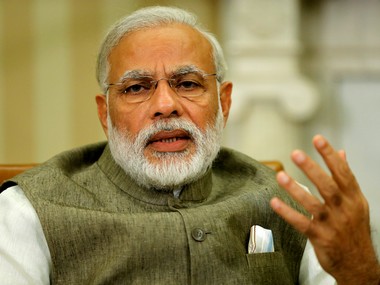Three speeches over the weekend within barely 24 hours, two by Prime Minister Narendra Modi and one by Finance Minister Arun Jaitley sandwiched between the two, appear to give contradicting signals on the war against black money. Does this mean that South Block and North Block are working at cross purposes? Certainly not, in principle, but there are finer details that would make it appear that like the demonetisation drive that Modi launched on 8 November, there may be holes in the process that may invite more criticism than praise.
Modi said on Saturday at a function organised by the Securities and Exchange Board of India (Sebi), the capital markets regulator, that those who gain from capital markets must contribute to nation building. Jaitley was forced to clarify that this was not a hint that long-term capital gains taxation, which currently stand at zero for equities, was set to be raised or strengthened.
Then again, on Sunday in his weekly “Mann Ki Baat” speech, Modi officially declared a war on “benami” property – assets held in the name of front persons or fictitious persons – citing a 1988 law given fresh lease of life earlier this year through suitable amendments.
It is quite possible that both these gentlemen are ignoring not one but quite a few elephants in the room.
The first is that the illegal act of tax evasion may be only a small portion of the legal business of tax avoidance in which de-facto evasion takes place without much of a fuss. This happens through religious and charitable trusts or seemingly public entities. The most glaring one in the public’s eyes has been the case of the Board of Control for Cricket in India (BCCI) that merrily lords over hundreds of crores of rupees. Efforts were made during the UPA rule in 2009 to check this, but it is worthwhile to ask whether there has been any progress on the issue. On the face of it, it doesn’t seem so as illustrated by how temples and charities abuse donations to game the system.
Sadly in India, God is drawn in as an accomplice in tax evasion and money laundering. It seems more than a coincidence that Tamil Nadu business baron J Sekhar Reddy, from whose premises income tax officials unearthed more than Rs 100 crore in cash, was also a prominent member of the Tirupati temple board .
Between cricket and religion, India’s most popular activities, there is a lot for the taxman to worry about. Add to this the complicated abuse of family trusts , which the National Institute of Public Finance and Policy has discussed at length, the game becomes murkier.
Now, long-term capital gains are also an easy way to launder money for many. India did this year sign a d ouble taxation avoidance agreement with Mauritius , which has been for years a source for money laundering but the changes take only prospective effect from 2017 in a limited way. Nothing can be done about the laundering that has been legitimised for decades through what is called “round-tripping” of local black money .
Without going into such international routes – which usually helps only foreign investors and the big boys of crony capitalism – even the local exemption from long-term capital gains tax can be used smartly to avoid taxes. Curbing the use of penny stocks to evade tax has been discussed within the government but Jaitley’s clarification over the weekend suggests nothing can be done about it or is being done about it. Indeed, there are serious issues on how penny stocks can be seen as a separate category for tax computation. Price-rigging – very easy when one person sells shares to another in a volatile market, is the key issue and it is not an easy one to police for the government.
In essence, we could say that the government faces a benami tsunami – and a lot of the measures taken by the NDA government can at best check prospective tax evasion. Maybe Sebi can crack the whip on some transactions but it is not an easy game. Modi’s war cry is welcome, but what he faces is not a battlefield but a labyrinth. When wars are announced from the South Block but battles have to be fought from across the street, the game is complicated.
(The author is a senior journalist. He tweets as @madversity)


)




)
)
)
)
)
)
)
)